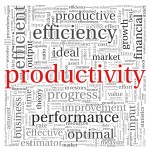 New figures from the Office for National Statistics (ONS) have shown a recent significant drop in labour productivity from Q4 2016 to Q1 2017.
New figures from the Office for National Statistics (ONS) have shown a recent significant drop in labour productivity from Q4 2016 to Q1 2017.
UK labour productivity, as measured by output per hour, is estimated to have fallen by 0.5% from Q4 (Oct to Dec) 2016 to Q1 (Jan to Mar) 2017; over a longer time period, labour productivity growth has been lower on average than prior to the economic downturn.
This is the first drop in productivity since Q4 (Oct to Dec) 2015. This 0.5% fall is also below the 1994 to 2007 labour productivity growth average, which – even in the light of recent stronger quarters – provides little sign of an end to the UK’s ‘productivity puzzle’, according to the ONS. This term refers to the relative stagnation of labour productivity since the recent economic downturn. This is in contrast with patterns following previous UK economic downturns where productivity initially fell, but subsequently bounced back to the previous trend rate of growth.
Mariano Mamertino, EMEA Economist at the global job site, Indeed, commented: “Britain’s productivity puzzle has morphed into a productivity problem.
“Such an abrupt reversal of the previous pattern of sluggish improvement will have set alarm bells ringing both at the Treasury and the Bank of England.
“From an economist’s standpoint, a fall in productivity is worrying because it suggests there is no capacity left in the economy – which could hamper future growth and put a ceiling on wage rises. It could ultimately make UK labour less competitive, making it harder for British firms to compete on the world stage and potentially putting off foreign investors.”
However, while labour productivity fell in services, it rose in the manufacturing industries; services productivity fell by 0.6% on the previous quarter, while manufacturing productivity grew by 0.2% on the previous quarter.
Earnings and other labour costs growth outpaced productivity growth, resulting in unit labour cost growth of 2.1% in the year to Q1 2017.
“But for workers the impact is likely to be more immediate and painful,” Mamertino continued, “as employers could rein in pay rises. With Britain already suffering one of the worst pay squeezes in recent history, the prospect of companies tightening the salary screws even further will hit many workers hard and force them to slash household spending.
“Three key economic measures are now out of sync – and that disconnect will cause pain for both employers and employees. With productivity falling, increasing wages will hurt employers. And with inflation outpacing wage growth, workers are already seeing their real wages shrink. At this rate both companies and their staff could be worse off.
“Compared to these surprisingly bad figures, Britain’s previous productivity stagnation now almost looks good. Such a negative set of data gives an early warning sign of trouble ahead, both for the UK labour market and the economy as a whole.”

 Subscribe to RSS
Subscribe to RSS

 Print
Print Email
Email
















